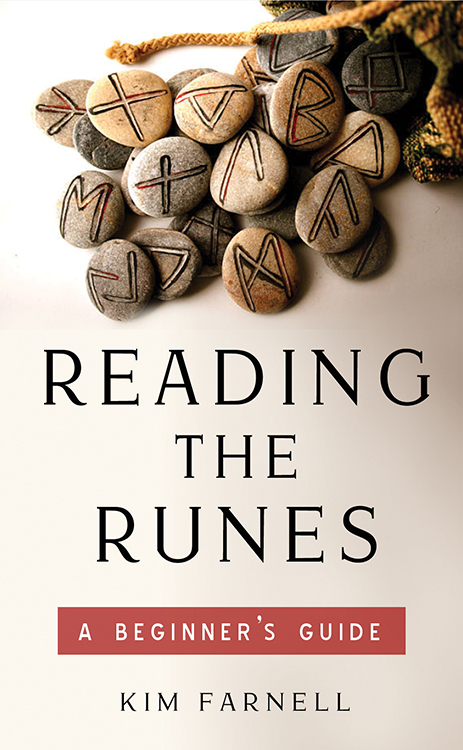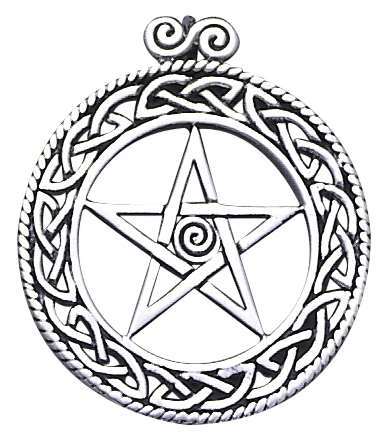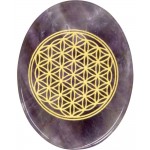The History of Friday the 13th: Unlucky or Misunderstood?
- 2660
- 0
Friday the 13th has long been shrouded in mystery and superstition. It's a date that, for many, evokes a sense of dread, caution, and foreboding. Whether it's the fear of accidents, bad luck, or something more sinister, Friday the 13th has been etched into popular consciousness as an unlucky day. But where did this belief come from, and why do we still hold onto it so strongly in modern times?
The roots of Friday the 13th as an unlucky day lie in a mix of ancient beliefs, medieval history, and even witchcraft lore. To fully understand why this particular day carries such a reputation, we need to delve into its historical origins, especially the dark association with the Knights Templar, the symbolic meaning of the number 13, and the significance of Friday in various religious and cultural traditions. Additionally, we'll explore how some witchcraft beliefs suggest that Friday the 13th isn't inherently unlucky, and how specific crystals can help turn misfortune into fortune.
Origins of the Fear of 13
The number 13 has a long-standing reputation for being unlucky, and this superstition can be traced back thousands of years. In many cultures, 12 is considered a number of completeness and order: there are 12 months in a year, 12 signs of the zodiac, and 12 gods of Olympus, to name just a few examples. Thirteen, then, is often seen as disruptive or irregular, something that disturbs the balance.
In ancient Norse mythology, the number 13 was considered unlucky due to a legend about a banquet in Valhalla. According to the story, 12 gods were invited to the feast, but the mischievous god Loki showed up as the uninvited 13th guest, which led to chaos and the death of the beloved god Balder. This tale of an unlucky 13th guest became a precursor to the superstition surrounding the number.
In Christianity, the number 13 also gained negative connotations. The Last Supper, the final meal Jesus shared with his 12 apostles before his crucifixion, is said to have had 13 attendees. Judas Iscariot, who betrayed Jesus, was the 13th guest at the table. This association between betrayal, death, and the number 13 further cemented its unlucky reputation in Western cultures.
The Knights Templar and Friday the 13th
One of the most famous connections between Friday the 13th and bad luck comes from the medieval period, specifically the downfall of the Knights Templar. The Knights Templar was a powerful military and religious order founded in the 12th century to protect Christian pilgrims traveling to the Holy Land. Over time, the Templars amassed considerable wealth and influence, which eventually made them a target for King Philip IV of France.
On Friday, October 13th, 1307, King Philip ordered the arrest of hundreds of Templar knights, accusing them of heresy, idolatry, and other crimes. The Templars were tortured, forced to confess, and many were executed. This event marked the beginning of the end for the Knights Templar, and it is often cited as one of the reasons Friday the 13th became associated with misfortune. The betrayal, sudden downfall, and violent persecution of the Templars on this fateful day left a lasting impact on European consciousness.
Friday: A Day of Unlucky Associations
In many traditions, Friday itself has long been considered an unlucky day, especially when combined with the number 13. In Christianity, Friday is viewed with some solemnity, as it was the day of the week when Jesus was crucified. This connection to the crucifixion, an event of great suffering and sacrifice, may have contributed to the belief that Fridays, in general, were unlucky.
Sailors, too, were traditionally superstitious about setting sail on a Friday. It was often avoided as a starting day for long journeys at sea, as it was believed to invite bad weather, accidents, or other misfortunes.
For these reasons, when the number 13 and Friday converge, it creates a day that amplifies feelings of unease. However, these beliefs are largely rooted in cultural and religious narratives rather than any objective truth about the day itself.
Witchcraft and Friday the 13th
From the perspective of witchcraft and pagan traditions, Friday the 13th can be seen in a very different light. Rather than being viewed as a day of bad luck, many practitioners of witchcraft consider Friday the 13th a powerful day for magic, particularly when it comes to feminine energy, love, and protection. This view comes from the association of both the number 13 and the day Friday with goddesses and the divine feminine.
In many pagan traditions, Friday is associated with Venus, the Roman goddess of love, beauty, and fertility. Venus rules over Fridays, and her influence makes the day particularly potent for rituals related to love, attraction, and abundance. Far from being unlucky, Fridays can be viewed as a time to manifest positive energy.
The number 13 also has deep connections to goddess worship and the cycles of nature. There are 13 lunar cycles in a year, and the number is often linked to the menstrual cycle, which is roughly 28 days long (13 times in a year). For ancient cultures that revered the moon and its phases, the number 13 was a symbol of feminine power and regeneration. Thus, in witchcraft, the number 13 is often seen as sacred rather than unlucky.
Crystals for Turning Luck Around on Friday the 13th
For those who wish to harness the energy of Friday the 13th and transform potential misfortune into good luck, certain crystals are believed to offer protection, grounding, and positive energy. Many people who practice witchcraft or other forms of spiritual healing turn to these crystals on Friday the 13th to shift the energy of the day in their favor.
Here are some of the most commonly recommended crystals for turning luck around on Friday the 13th:
- Black Tourmaline: Known for its protective qualities, black tourmaline is a grounding stone that is often used to ward off negative energy. It is especially helpful for dispelling fear, anxiety, and feelings of being cursed, which makes it an ideal stone to carry on Friday the 13th. Its grounding energy helps bring clarity and a sense of safety in uncertain times.
- Amethyst: A stone of spiritual protection and purification, amethyst is commonly used to enhance intuition and psychic abilities. On Friday the 13th, amethyst can help ward off unwanted negative influences and promote calm, peaceful energy. It is also believed to open the mind to higher consciousness, which can be useful for those seeking clarity during times of fear or superstition.
- Labradorite: Labradorite is a stone of transformation and protection, often used by those looking to shift negative patterns into positive ones. Known for its shimmering colors and mystical energy, labradorite is said to strengthen intuition and psychic powers. It can help navigate the unknown, making it a valuable tool on a day that is often seen as unpredictable.
- Tiger's Eye: This stone is associated with courage and strength, and it is often used to boost confidence and dispel fear. Tiger's eye is believed to bring luck and protection, particularly in situations where one feels vulnerable. Carrying tiger's eye on Friday the 13th can provide the courage needed to face any challenges head-on.
- Citrine: Known as the "merchant's stone," citrine is associated with abundance and prosperity. It is believed to attract wealth and success while dispelling negative energy. Citrine’s sunny, vibrant energy makes it an excellent crystal for counteracting any potential bad luck associated with Friday the 13th.
Rituals for Good Luck on Friday the 13th
For those who want to take their luck into their own hands, there are several rituals rooted in witchcraft and pagan traditions that can help shift the energy of Friday the 13th in a positive direction.
- Cleansing Ritual: Start by cleansing your space with sage or palo santo to remove any stagnant or negative energy. As you cleanse, set the intention that the day will be filled with positivity, protection, and good fortune.
- Crystal Charging: On the night before Friday the 13th, place your chosen crystals on a windowsill where they can absorb the energy of the moonlight. This will charge them with protective energy for the day ahead. On Friday the 13th, carry these crystals with you, or place them in areas of your home that need extra protection.
- Abundance Spell: To turn the tide of misfortune, try performing an abundance spell. Gather a green candle (associated with prosperity), some citrine, and a small piece of paper. Write down your intention for abundance and success, light the candle, and focus on your desires while holding the citrine. Visualize good fortune flowing into your life.
- Protection Bath: Taking a ritual bath can be a powerful way to protect yourself from negative energy on Friday the 13th. Fill a bath with sea salt, black tourmaline, and a few drops of lavender oil. As you soak, imagine a protective shield forming around you, keeping out any negative influences.
Friday the 13th, Unlucky or Powerful?
While Friday the 13th has earned a reputation for being an unlucky day, its roots in history, religion, and witchcraft suggest that it is far more complex than mere superstition. For many, especially those who practice witchcraft, it can be a day of great power, transformation, and even luck. Whether you choose to see Friday the 13th as a day to be cautious or a day to harness powerful energies, understanding its historical and spiritual significance.
Related Posts
Embracing the Wolf Moon in Leo: A Wiccan Perspective
- 1455
- 0
In celebrating this full moon, Wiccans can deepen their connection to the Divine, the Earth, and each other, embodying the true spirit of the Craft. Let this Wolf Moon be a beacon, guiding your journe..
5 Misconceptions about Traditional Wicca
- 1213
- 1
With the rise of eclectic, do-it-yourself Wicca, traditional Wicca quickly took a backseat. But our numbers are rising.


















